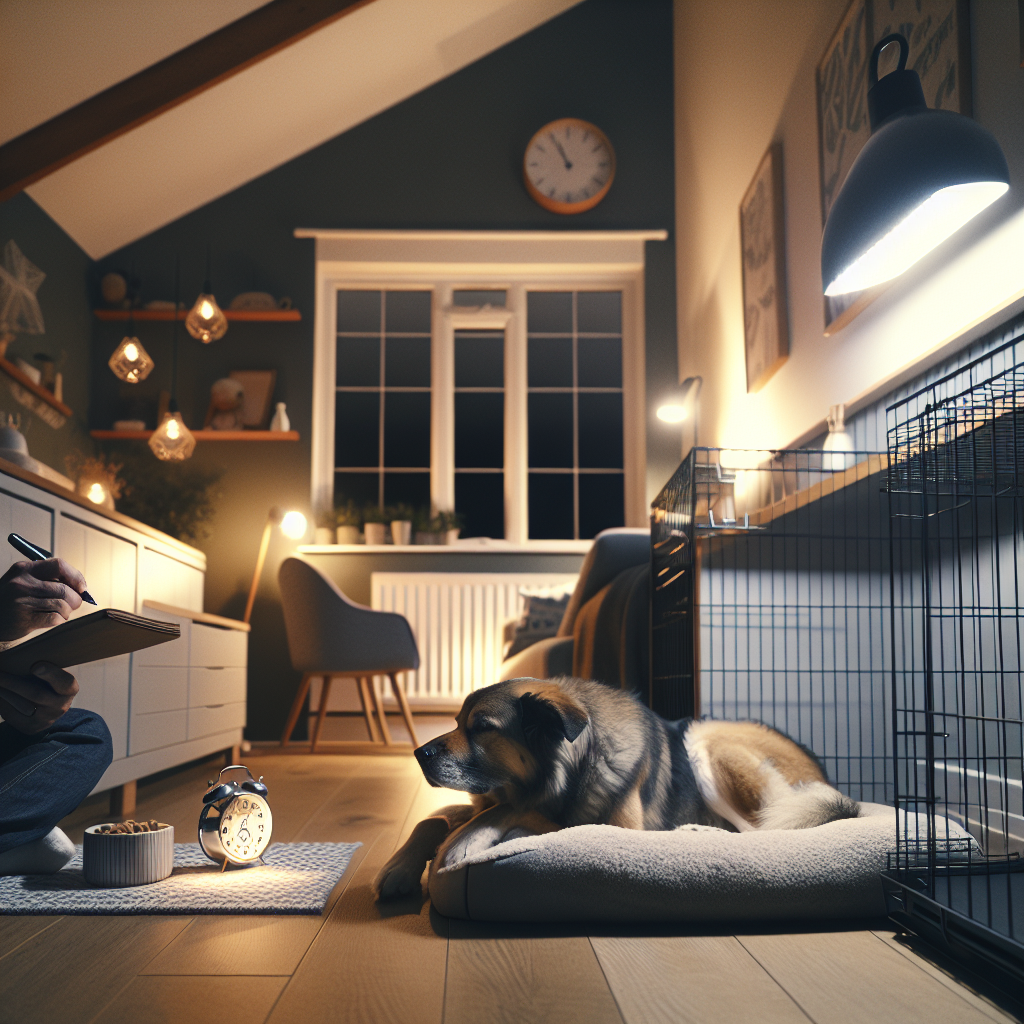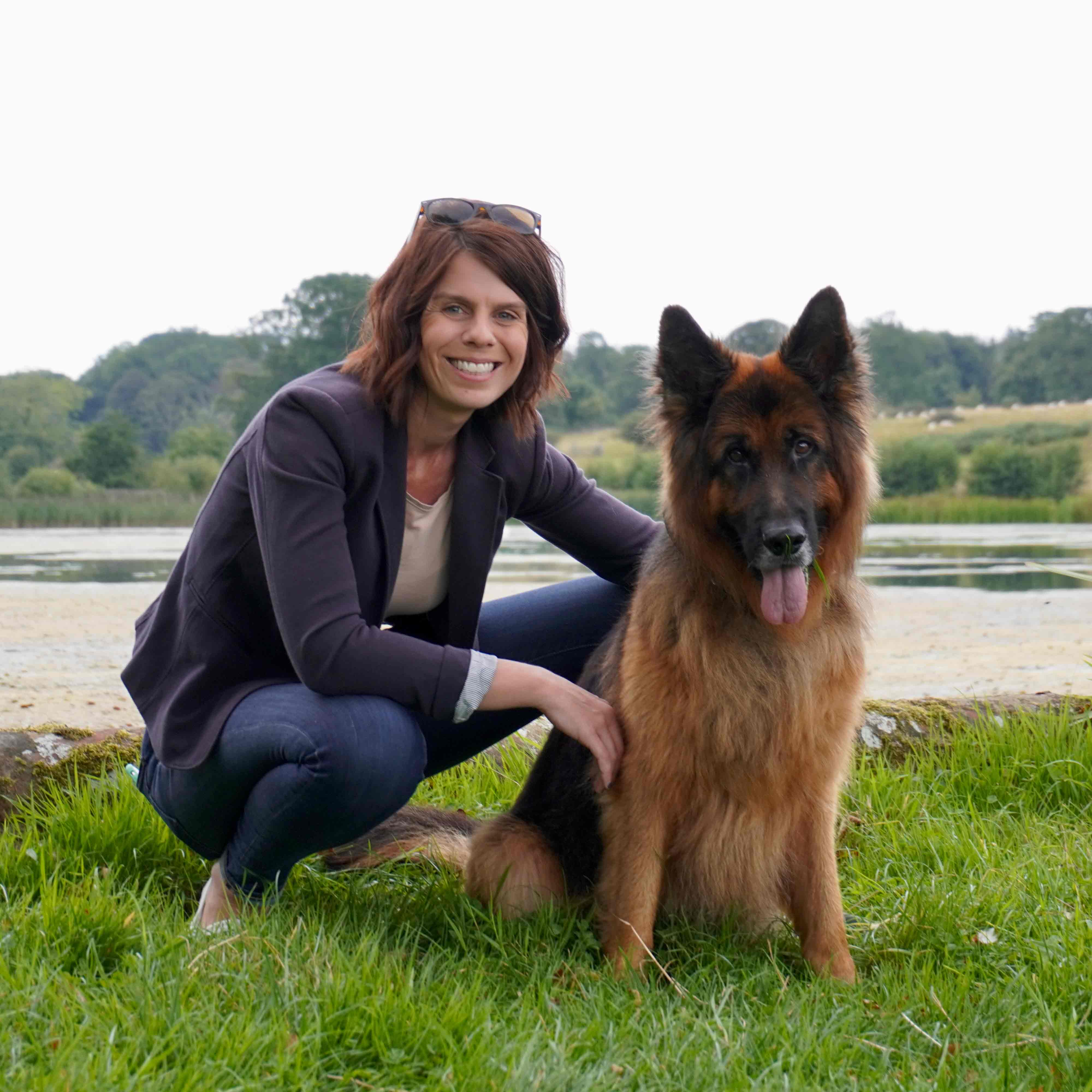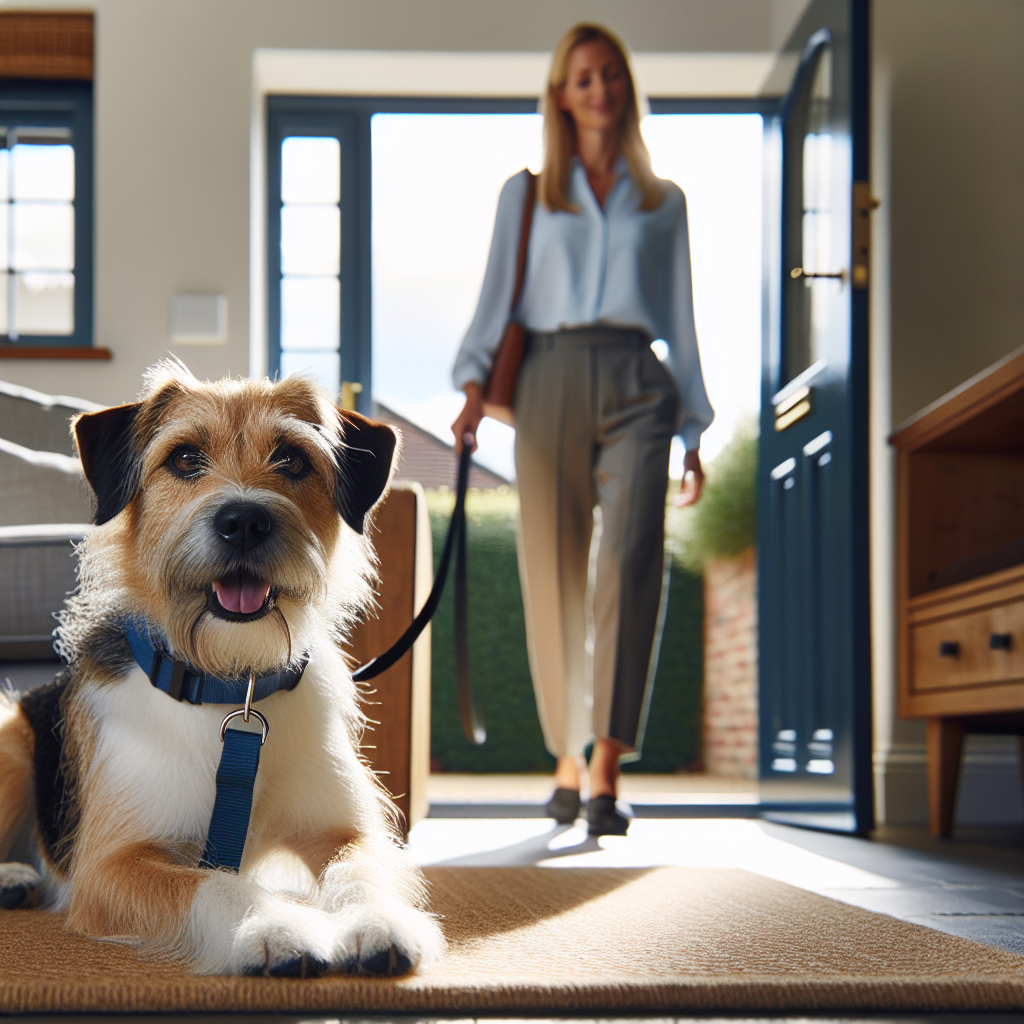Dog Barking at Night Solutions

Dog Barking at Night Solutions
If you are losing sleep, you are not alone. Dog barking at night solutions need to be clear, fair, and proven in real homes, not theories. At Smart Dog Training, we use the Smart Method to stop nighttime barking and build calm that lasts. Every step is simple to follow, and every result is made for real life. If you want fast change and steady progress, our dog barking at night solutions will get you there without guesswork. A certified Smart Master Dog Trainer can coach you through each stage, so you sleep well again.
Why Dogs Bark After Dark
Barking at night happens for a reason. Dogs speak through sound and movement. If they do not know what to do, they fill the gap with vocalising. The most common drivers are toilet needs, pain, anxiety, boredom, fear of noises, and learned patterns. Without structure, the habit grows and your dog rehearses it more and more. Dog barking at night solutions must address the root, set a routine, and give the dog a job that feels safe and clear.
The Smart Method For Calm Nights
Smart Dog Training delivers quiet nights through the Smart Method. It blends motivation, structure, and accountability in a way dogs understand.
- Clarity, we use precise commands and markers so your dog knows what you want
- Pressure and release, we guide fairly, then release and reward when the dog makes the right choice
- Motivation, we build engagement with rewards and praise, so the dog wants to work
- Progression, we increase distraction, duration, and difficulty a step at a time
- Trust, we strengthen the bond so your dog feels safe and calm
This balanced system is the backbone of our dog barking at night solutions, and it is why Smart is trusted across the UK. Your plan becomes predictable, your dog becomes consistent, and sleep returns.
Find The Real Reason For Night Barking
Effective dog barking at night solutions start with a clear reason. Spend two nights observing without adding new rules, then write a simple log. Note the time barking starts, where your dog is, what happened before, and how you responded. That log shows the trigger and the pattern.
Health And Toilet Needs
- Rule out pain or illness first. Sudden night barking can be a sign your dog is not comfortable
- Check toilet timing. Most adult dogs need one last outdoor break close to bedtime
- Adjust feeding times. Large meals right before bed can cause restlessness
- Review water access. Offer water, then pick up an hour before sleep for dogs that wake to drink and fuss, young puppies and medical needs are the exception
Separation And Stress
- Look for signs like pacing, panting, drooling, or scratching at doors
- Plan gradual independence training during the day, then apply it to nights
- Use station work so your dog learns to settle in one place and relax
Build A Night Routine That Works
Routines make results. Repeat the same steps every evening so your dog stops guessing. Strong routines are the heart of dog barking at night solutions because they fill the time with helpful habits.
Daytime Exercise And Enrichment
- Physical work, match exercise to your dog. A brisk walk or training session twice a day is a good start
- Brain work, practice obedience, scent games, and short training drills to use mental energy
- Calm time, teach your dog to switch off in the house, do not let nonstop play roll into the night
Evening Wind Down And Last Outs
- Sixty minutes before bed, shift to calm activities like chewing a safe bone or resting on a station
- Thirty minutes before bed, last toilet break and a short, quiet walk if safe and practical
- Ten minutes before bed, tuck in, lights low, gentle praise for choosing to rest
Keep the tone soft and steady. Your energy sets the night. When the routine is the same, your dog relaxes sooner and barking fades.
Create A Sleep Setup Your Dog Understands
Night setups should remove confusion and make resting the easy choice. Dog barking at night solutions often fail when the environment keeps the dog on alert. Tune the space so it invites sleep.
- Pick a consistent sleep spot, a crate, pen, or defined bed station
- Make it clear, guide your dog to the spot and reward calm
- Reduce sound and light, use curtains, a fan, or soft white noise to mask outdoor triggers
- Check comfort, normal room temperature, a supportive bed, and safe chew options for young dogs
- Keep the area boring, no toys that spark play, no access to windows for guard barking
A crate is helpful when trained with clarity and reward. Crates provide a bedroom your dog understands. If you prefer a dog bed, teach station work so the boundary is clear. Either choice can work when you follow the Smart Method.
Teach Quiet With Smart Markers
Training the Quiet command gives you a switch to turn sound into silence. Our dog barking at night solutions use precise markers so the dog knows exactly when they made the right choice. Clarity ends confusion.
Step By Step Training Plan
- Prime markers and rewards. Use a reward marker like yes, then treat. Practice three short sessions so your dog links the sound with a reward
- Capture the moment of silence. Create a mild trigger during the day, a knock or a door sound, let one bark happen, then go quiet yourself. The instant your dog pauses, say Quiet in a calm tone, mark yes, then reward
- Add duration. Next, wait for one full second of silence, then two, then three. Mark and reward after each silent count
- Add distance and context. Practice Quiet from five steps away, then in other rooms, then near the crate or bed at night
- Layer pressure and release. If your dog breaks and barks again, guide back to the station with the lead, pause, and relax your lead the moment they settle. Release and reward the calm
- Proof with mild night sounds. Play low volume outside noises while you practice. Keep it easy at first, then increase slowly
Short, focused sessions beat long ones. Three to five minutes, two or three times a day, will build a reliable command that you can use when the lights are out. This is one of the core dog barking at night solutions we use with families nationwide.
Handle Barking In The Moment
Middle of the night choices can make or break your progress. Use this Smart sequence when barking starts.
- Pause for two to three seconds. Many dogs self settle if you do not rush in
- Give Quiet once, in a calm, low voice
- Wait for even a half second of silence. Mark yes, then reward your dog in place if you are training a station, or calmly deliver praise through the crate
If your dog keeps barking, guide back to the sleep spot using the lead if needed, then stand still. The instant your dog softens, releases tension, or closes their mouth, release pressure and soften your posture. Mark and reward that calm. Avoid lots of chatter at night. Your stillness is part of the message. This use of pressure and release is central to Smart Dog Training and it keeps learning clear without conflict.
Do not repeat cues. Do not let your dog leave the sleep area to demand play or cuddles. Your goal is to teach that quiet earns comfort and rest, while noise never earns a party.
Ready to turn your dog’s behaviour around? Book a Free Assessment and connect with a certified Smart Master Dog Trainer, available across the UK.
First 72 Hours Reset Plan
A strong start breaks the cycle. Use this simple plan to reset fast. It is one of our most effective dog barking at night solutions in real homes.
- Night one, tighten the routine. Extra daytime training, calm evening, clear sleep station. Mask noise and reduce light. Rehearse Quiet with easy wins before bed. In the night, use the single Quiet cue, then guide to station and reward silence
- Night two, add two minutes of station work at bedtime. Reward calm in place. Keep interactions short and flat if your dog vocalises
- Night three, extend the first sleep block by ten to fifteen minutes before the last toilet break. Dogs adapt to new sleep windows fast when the plan is clear
If there is a genuine toilet need or a young puppy schedule, take the dog out on lead, no play, no fuss, back to bed. Quiet, clear, and consistent wins.
When To Call A Smart Master Dog Trainer
Some cases need expert eyes. If barking has lasted more than two weeks, if you suspect separation distress, or if the habit has spread to early mornings, bring in a professional. A certified Smart Master Dog Trainer will assess your dog, your home, and your routine, then build a plan using the Smart Method that fits your family. You can start right now by choosing a time that suits you.
Book a Free Assessment to map a custom plan for your dog. Prefer to meet in person near you, use our trainer map and get support locally.
FAQs
What are the fastest dog barking at night solutions for a healthy adult dog
Set a strict evening routine, last toilet break near bedtime, teach Quiet with markers, and use a defined sleep station. Keep the night flat and calm. Interrupt, guide back, reward silence. Many families see improvement in three nights.
How do I stop puppy barking at night without making it worse
Use a crate or pen near your room at first, add one or two planned toilet trips, and reward quiet moments. Keep all night trips on lead and low key. Teach day calm and short nap times so the puppy learns to switch off. These are reliable puppy dog barking at night solutions.
Should I ignore nighttime barking until it stops
Pure ignoring can teach a dog to bark longer and louder. Smart Dog Training uses clarity. Give one Quiet cue, then guide to the sleep spot if needed, and reward silence. Your message stays consistent and fair.
Will more exercise stop night barking
Exercise helps but it is not the whole answer. Over tired dogs can be wired. Pair the right amount of daytime work with a calm evening and clear sleep rules. This balance is part of our dog barking at night solutions.
How long does it take for dog barking at night solutions to work
Most healthy adult dogs improve within three to seven nights when you follow the plan. Complex cases such as separation distress need a tailored programme, which we deliver through Smart Dog Training.
Is a crate required to stop barking at night
No. A crate helps many dogs, but a well taught station or bed can work. The key is clarity, pressure and release, and reward timing. The Smart Method makes either choice effective.
Sleep Well With Smart Training
Quiet nights are not luck. They are the result of clear cues, fair guidance, and steady practice. The Smart Method turns confusion into calm and gives you dog barking at night solutions that hold up under real life pressure. If you are ready for focused support and faster progress, we are here to help.
Your dog deserves training that truly works. With certified Smart Master Dog Trainers, SMDTs, nationwide, you will get proven results backed by the UK’s most trusted dog training network. Find a Trainer Near You



